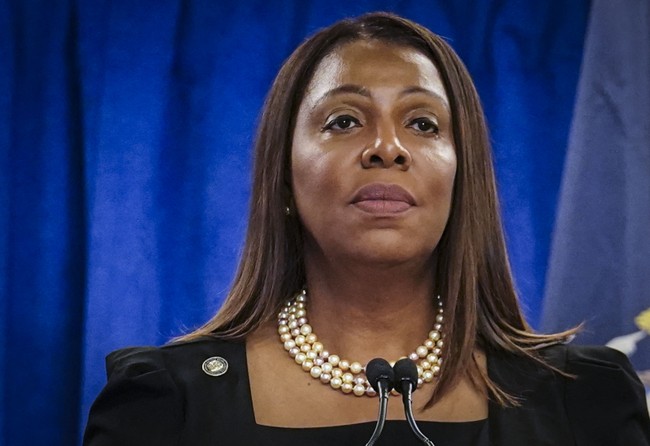
www.theamericanconservative.com
Did FDA Just Ignite a War Between SSRI Skeptics and Pharma?
Politics
Did FDA Just Ignite a War Between SSRI Skeptics and Pharma?
The American Conservative spoke with two experts from a recent FDA panel who have come under fire from mainstream media.
No one knows exactly how many pregnant women in the U.S. are taking antidepressants such as SSRIs and SNRIs, but researchers estimate it’s between 6 and 8 percent. After the FDA hosted a 10-expert panel examining the safety of SSRIs during pregnancy on July 21, backlash from medical organizations and media outlets was swift. The American College of Obstetricians and Gynecologists (ACOG) issued a same-day statement from its president, Dr. Steven J. Fleischman, calling the panel “alarmingly unbalanced.” Hours after the event, a headline from NBC News read, “FDA panel promotes misinformation about antidepressants during pregnancy, psychiatrists say.”
Depression during pregnancy is an important topic. (Depression affects up to 9 percent of pregnant women in the U.S., according to the Mayo Clinic.) But such knee-jerk reactions to conversations about the risks of SSRIs rob women of the information they need to make decisions for their own health and the health of their unborn children, two of the panelists told The American Conservative in interviews. Adam Urato, chief of maternal-fetal medicine at MetroWest Medical Center in Framingham, Massachusetts, joined the panel to speak about how drugs like Lexapro and Zoloft can impact fetal development. The backlash surprised and frustrated him, he said in an interview.
“This FDA panel really highlighted that there are significant risks with the use of these drugs in pregnancy,” Urato said. “I’m speculating to some extent, but I think that that probably fueled part of this corporate media backlash…. A lot of the funding for corporate media now comes from the pharmaceutical industry.”
“Of course pharma-funded media is going to come out against a panel that is highlighting the risks of a drug from pharma… especially with a huge market like women of childbearing age,” he continued, adding that most of the news coverage he read either ignored or downplayed the risks, including those of neonatal withdrawal syndrome, which can vary from mild to severe.
Urato said NPR issued a correction to a story by Rhitu Chatterjee titled “An FDA panel spread misinformation about SSRI use in pregnancy, alarming doctors” after he called attention to incorrect information in the article. Chatterjee originally claimed that panelists wrongly suggested that SSRI use is associated with a significantly higher risk of postpartum hemorrhage or miscarriage. NPR added a “clarification” box to the bottom of the post on August 1, which stated that there are studies that show such a risk, although the addendum noted “experts say, the risk is small.” (The Los Angeles Times also misidentified Urato as “David Urato” before issuing a correction, but that didn’t seem to matter as much to him.)
In interviews with TAC, Urato and fellow panelist Roger McFillin, Psy.D., executive director of the Center for Integrated Behavioral Health, emphasized that true informed consent by patients is rare because even physicians do not fully understand how SSRIs affect patients’ bodies and brains.
“This has been my obsession for quite some time now, digging into this history about what an SSRI is and what an SSRI isn’t,” McFillin told TAC. “It’s probably one of the most misleading drugs that exists out there. If they’re going to have any effect on anybody, they’re inducing an emotional numbing state. It decreases affective empathy. The serotonergic system is a complicated one that’s also implicated in pair bonding and human connection. So what do you do when you give a woman a drug that essentially can numb [her] and detach [her] from [her] own child? We’re going to say that’s a good thing? That’s an advancement in society? It’s not, in my opinion. It actually creates more problems.”
In his statement, ACOG’s Fleischman did agree with the panelists that SSRIs and pregnancy must be studied further. Fleischman blamed the Trump administration for thwarting such research by cutting NIH funding. Urato told TAC that such criticism misses the point.
“ACOG is getting that wrong to the extent that they’re saying, ‘Well, before we adequately warn people, we need to do more study on this,’” he said. “That’s not correct.”
Urato also cautioned against politicizing the issue, explaining that he has cared for many patients who were prescribed SSRIs before pregnancy and said most choose to continue taking SSRIs while in his care. He said he was concerned by an August 12 letter from Rep. Rashida Tlaib (D-MI) and seven other Democratic members of Congress to HHS Secretary Robert F. Kennedy Jr.
“Panelists made claims that SSRIs can cause neurological disorders and birth defects, despite the lack of any association in decades of studies,” Tlaib and her colleagues wrote, expressing fear that access to SSRIs would be limited. Urato called the letter “factually inaccurate [and] misleading” for ignoring that “numerous studies have linked SSRIs with birth defects – including [two] from the CDC.”
“Trying to make it a political issue is something else that’s come out of this meeting,” Urato told TAC. “Whatever your politics are, we can all agree that pregnant women and the public need proper information.”
An FDA spokesperson pushed back against criticism of FDA commissioner Marty Makary, who spoke at the beginning of the panel, saying that such claims are “politically motivated.”
“The claim that the FDA’s expert advisory process is ‘one-sided’ or politically driven is insulting to the independent scientists, clinicians, and researchers who dedicate their expertise to these panels,” the spokesperson told TAC in a statement. “This initiative is part of the FDA’s broader efforts to apply rigorous, evidence-based standards to ingredient safety and modernize regulatory oversight, thoroughly considering evolving science and consumer health.”
Laura Delano, a mother who wrote about her experiences with modern psychiatry and side effects from medications including SSRIs in her memoir Unshrunk: A Story of Psychiatric Treatment Resistance, praised the FDA panel on X. She spoke to TAC about the backlash to the July 21 panel.
“It’s unfortunate to see how polarizing the coverage has been, implying that the voices on that panel who were critiquing—or at least asking us to question the use of—SSRIs were being painted as shaming of women or as dangerous to women who are struggling with depression,” Delano said. “The way I heard those panelists was that they care deeply about the right that each woman has to make her own choices, but that those choices should be informed.”
In her book, Delano identifies The Myth of the Chemical Cure: A Critique of Psychiatric Drug Treatment by psychiatrist Joanna Moncrieff as a central text in her personal research. Moncrieff was one of several experts on the July 21 panel who expressed skepticism that SSRIs are as effective as drugmakers say. (She appeared virtually since she is based in the United Kingdom.) Delano praised the panel for being diverse in opinion, but it was also diverse in discipline: Experts from the UK, Canada, and United States represented specialties including perinatal epidemiology, developmental psychology, and biomedical engineering. The overall mood of the panel wasn’t contentious, but there were moments of tension. Jay Gingrich, director of the Columbia Institute for Developmental Sciences, spoke about how his research appears to show that SSRI use by pregnant women can lead to better outcomes for mothers but worse outcomes for their children. He also cast doubt on some of his fellow panelists’ views.
“Unlike maybe some of the other panelists, I think depression is a very real thing,” Gingrich said. “It’s more than just being sad. It may be a signal of other things in terms of lifestyle changes, but in my experience, I’ve found these medications to be lifesavers for the patients that I’ve been treating.”
Another panelist who shared Gingrich’s concerns was Kay Roussos-Ross, the director of women’s health at the UF Health Shands Medical Plaza. Roussos-Ross’s work has focused on high-risk obstetric patients with psychiatric and substance use disorders.
“When mental health conditions go untreated, these women are less likely to attend their prenatal care appointments, and they’re more likely to use substances during their pregnancy… We should not be withholding SSRIs,” she said, citing research showing that mental health issues (namely suicide and overdose) are a leading cause of maternal death in the U.S.
Perhaps the disconnect between some of the panelists’ presentations hinged on the fact that women taking SSRIs have such varied profiles. Some women start taking them as teenagers and continue well into adulthood because they don’t know what their moods or personalities would be without them. (Urato said he recently saw a patient who’d been on an SSRI for 17 years.) Other women struggle with various addictions and start taking SSRIs for the first time while pregnant. Other women are first prescribed SSRIs during the postpartum period.
A 29-year-old woman who asked to be identified only by her age for privacy reasons spoke to TAC about her experience being prescribed Lexapro for anxiety. The woman was a 20-year-old college student when her doctor prescribed her the SSRI. She said she was asked if she was pregnant or planned to become pregnant, but she does not remember having any kind of robust conversation with her physician about the pros and cons of taking Lexapro.
“I really thought [the medication] could help me. Maybe it does help other people. I’m sure it does. But me, it didn’t, and I think what could have helped me more in college was maybe talking to a therapist,” the woman told TAC.
She said she stopped taking Lexapro at age 23 and didn’t notice any change in her anxiety. She said she had “the shakes” for a few days and noticed her libido “went way up.”
“I was like, ‘I can’t believe I’ve been taking this for so long, really, because what was the point?’” the woman said. She plans to have children and said being off the SSRI makes her feel more confident about entering into pregnancy. She wasn’t aware of the FDA panel before TAC mentioned it, but said the backlash didn’t make sense to her: “There are so many things to be sensitive about [during pregnancy]. So to kind of brush this off as something you don’t have to worry about, it just feels weird to me.”
A few days of “the shakes” is a relatively minor experience with psychiatric drug withdrawal, according to proponents of the long taper approach to quitting psychiatric drugs. Urato and McFillin both stressed the lack of understanding in the medical community about psychiatric drug withdrawal and said patients and providers often can’t distinguish withdrawal symptoms from a relapse.
“This whole issue of how [an SSRI] affects the pregnancy, we shouldn’t be addressing during the pregnancy for a variety of reasons, but particularly because of the problem with withdrawal,” Urato told TAC. “It really needs to be addressed from the get-go.”
A safe tapering protocol can take a year or more, McFillin said: “Women need to prepare to get off the drug if they want to not be on it during pregnancy.”
Much of the media response to the panel focused on the risks of depression for both mom and baby. Urato said he understands why but also worries that this focus gives drug companies an excuse not to answer hard questions.
“When OxyContin was causing problems with addiction and other problems in communities, the drug company wanted to focus on pain and how bad pain was and the epidemic of untreated pain and talk about that,” he said. “It’s okay to talk about the condition, but you’ve got to talk also about the drug. What are the actual chemical effects of these drugs?”
The post Did FDA Just Ignite a War Between SSRI Skeptics and Pharma? appeared first on The American Conservative.

















